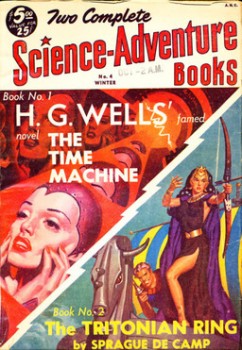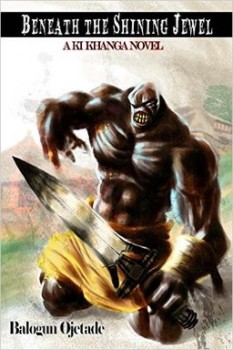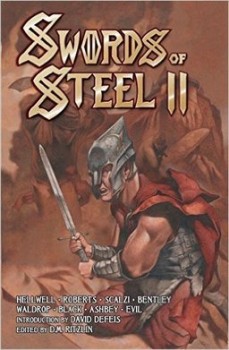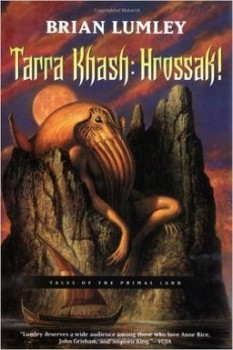May Short Story Roundup
 Well, sad to say, there are just not that many swords & sorcery stories to round up this month. The big guns, Heroic Fantasy Quarterly and Grimdark Magazine, (the latter delayed while they run the Kickstarter for their anthology, Evil Is A Matter of Perspective) were silent. Beneath Ceaseless Skies’ two May issues didn’t have anything that fit the S&S bill. None of the other magazines yielded stories to review either. Only the stalwart Swords and Sorcery Magazine came through, just like it does every single month for over four years now.
Well, sad to say, there are just not that many swords & sorcery stories to round up this month. The big guns, Heroic Fantasy Quarterly and Grimdark Magazine, (the latter delayed while they run the Kickstarter for their anthology, Evil Is A Matter of Perspective) were silent. Beneath Ceaseless Skies’ two May issues didn’t have anything that fit the S&S bill. None of the other magazines yielded stories to review either. Only the stalwart Swords and Sorcery Magazine came through, just like it does every single month for over four years now.
According to the online Merriam-Webster Dictionary, a skimmington is “a boisterous procession intended to ridicule an unfaithful spouse or a shrewish wife often with effigies and a mock serenade” and “The Skimmington” is the title of B.C. Nance’s story in this month’s issue of SSM. No one in town believes wealthy landowner Daegal’s claim that his wife, Esma, ran out on him. Alden, a man who once loved the missing woman, convinces his fellow citizens to conduct a skimmington parade out to Daegal’s estate. His hope is they can shame Daegal into revealing where Esma really is. While there’s a supernatural element to the tale, it could just as easily be set in any small pre-industrial town. In any setting, though, it would remain a well told story with a haunting ending.
“Rivenrock,” by Connor M. Perry (whose previous story in SSM, “Stragglers in the Cold,” I enjoyed very much), tells of Elegia, the reborn Shepherd of Night, and her lover, Darza. Together, they are searching for the Shepherd’s ancestral home, a place called Rivenrock. Their guide is a man named Averon Thorn whom neither fully trusts, even though he claims to be a supporter of their cause. The concluding spasm of violence is brutal and affecting, but it doesn’t really provide a satisfying conclusion to the story.
Behind the events of “Rivenrock” is an ongoing struggle between the Shepherd of Night and the Lord of Morning. Each appears to have been recently reborn after having been gone for sometime. The Lord seems to have come back earlier and wields more temporal and magical power at present. The Shepherd is still finding her way, thus her need to reach Rivenrock. It’s all very vague and makes following the story less than compelling.
So that’s all there is to review this month. As usual, you should go read them and let the authors and editor know what you think.








